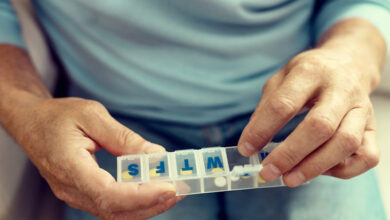Coffee’s Health Benefits Supported by New Research

Churches that serve coffee on Sunday mornings may be doing more than just helping members stay alert during the sermon. They also may be providing health benefits, extending their lifespan. In a study of more than 40,000 people in a national health survey, researchers found that morning coffee drinkers had a lower risk of dying prematurely than non-coffee drinkers. The biggest beneficiaries might be those who drank coffee only in the morning rather than throughout the day, as shown by recent research findings.
Of course, these findings are from a single study, so further research is needed on the timing of coffee drinking. At the same time, this new study adds to a large and growing amount of research showing that coffee drinking overall can have many health benefits. Coffee has more than 1,000 compounds that could aid health. Among other possible benefits, these compounds could help improve the gut microbiome, ease inflammation, help with DNA repair and help control blood sugar, according to health trends coverage.
Studies have linked moderate coffee drinking with a lower risk of stroke, heart disease, diabetes, gallstones, Parkinson’s disease and some cancers. It may even help with longevity. Many of these possible benefits seem to include decaf as well as regular, caffeinated coffee. For more information on faith and wellness, read about church health initiatives.
Coffee drinkers in the United States average around two cups a day, within the range of up to two to four eight-ounce cups (or up to 400 milligrams of total daily caffeine) that’s likely safe for most adults, according to the federal Dietary Guidelines for Americans. Depending on the type of coffee and how it’s made, an eight-ounce cup of brewed coffee can have around 95 to 180 milligrams of caffeine.
For women who are pregnant or breastfeeding, general recommendations are lower — often under 200 milligrams of caffeine a day. Women who are pregnant, wanting to become pregnant or breastfeeding should talk to a health-care provider about how much coffee or caffeine is safe for them.
“Keeping it simple is usually the best approach when it comes to coffee drinks,” said Dr. Graham A. Colditz, associate director of prevention and control at Siteman Cancer Center at Barnes-Jewish Hospital and Washington University School of Medicine in St. Louis. “Choose black, unsweetened coffee, or with just a little sugar and splash of milk. Try to limit specialty coffee drinks that have a lot of added sugar, unhealthy fats and calories, which can offset some of the benefits we may be getting from our coffee.”
–Alan Goforth








